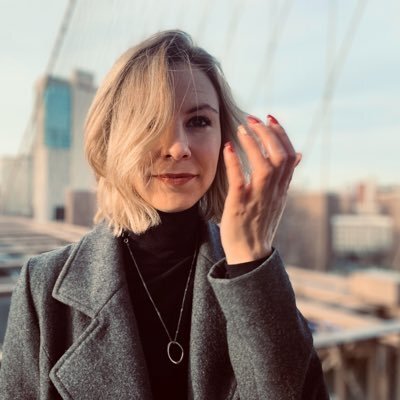"Foreign correspondents must be very precise in what they are reporting"

Maria Khrenova is a foreign correspondent based in New York City, covering the United Nations permanently. Khrenova is originally from Moscow, Russia, and studied multimedia storytelling at New York University, where she graduated recently in 2020. Khrenova is a Special Correspondent for TASS, the Russian News Agency, and previously worked for the Russian Foreign Ministry. Khrenova sat down with us for a live interview about the differences between reporting in Russia and the U.S., her unique experiences as a reporter at the United Nations, and the precarious state of U.S.-Russian relations.
The difference between working in the U.S. and Russia: “You have to be cautious.”
Khrenova described the differences between reporting in the U.S. and Russia, highlighting the importance of fluency in multiple languages and being cautious about what is said. “You have to be cautious. I wouldn’t lie now being a Russian correspondent in the U.S.,” said Khrenova. She went on to explain that correspondents working abroad have to be aware of each country’s rules. “If you [do] something incorrectly, it may be difficult to find some help,” Khrenova added that in these situations, it is helpful to have a support system like the Association of Foreign Press Correspondents.
The pros of working at the United Nations
Khrenova talked about the highlights of working at the United Nations, including the opportunity to talk to foreign diplomats from many different countries. “It’s something I didn’t have in Russia because we have foreign embassies in Moscow, but some of them are more open to [the] press, and some of them really don’t invite [the] press at all, so it was more tricky,” Khrenova said at the United Nations she has access to more information and more people.
From a Russian standpoint, Biden’s first 100 days weren’t very “promising.”
Khrenova explained an incident in which President Biden called the Russian President, Vladimir Putin, a “killer.” Khrenova described the situation as “tragic” for U.S.-Russia relations. “I believe high-level officials should understand that such words are really harmful,” she said. Khrenova expressed that she believes that U.S.-Russia cooperation is of great importance as the two countries are both members of the United Nations security council. “So the first 100 days were challenging for bilateral relations between Russia and the United States definitely.” On the other hand, Khrenova adds that Biden’s first few months in office have been good in terms of global cooperation citing his return to the Paris Agreements and re-established good relations between the United States and the United Nations.
On Russia’s response to the pandemic
Khrenova talked about Russia’s response and recovery from the pandemic. On their contribution to the global fight against coronavirus, Khrenova stated: “It’s a huge contribution. Really huge. It’s just something some countries don’t want to acknowledge for, I think, political reasons.” Khrenova expressed her pride for her country in how quickly they reacted to the outbreak. On Russia’s international contribution, Khrenova talked about Russia’s speedy vaccine development. While Russia is ready to administer its vaccine to other countries, it has yet to be approved by The World Health Organization. Khrenova also stated that she believes Russia’s response to the pandemic was better than America’s because of the extra time they had to prepare.
Khrenova’s advice to young foreign journalists
“You have to be [a] multitask[er] now. It’s a necessity, it’s a must. It’s not enough to be a good interviewer or just to write, have a good writing style, it’s not enough. You have to do everything”. Khrenova advises that journalists work on many skills, including photography, videography and video editing, and tech-savviness. She explained that she often has to edit her own content with time differences and distance to have a polished report ready on time. “My advice is just to educate yourself as much as possible and try to learn new things.”
Kate Nakamura is a news associate of the Foreign Press. She was born and raised in Honolulu, Hawaii, and moved to New York City to study journalism at Hunter College. She graduated in 2020 with a Bachelor's degree in Media Studies, focusing primarily on documentary filmmaking and multimedia journalism. Her primary focus in journalism is writing and reporting on minority issues in the United States.
